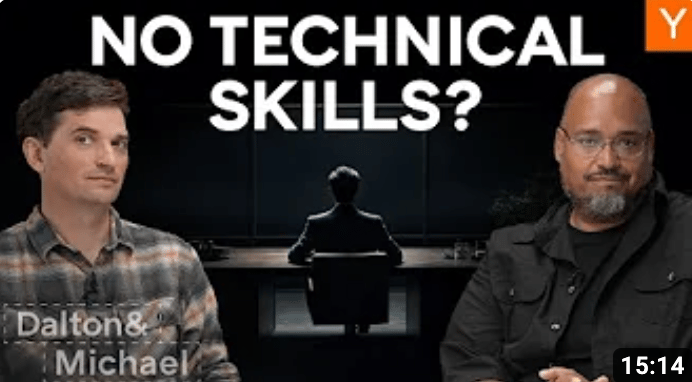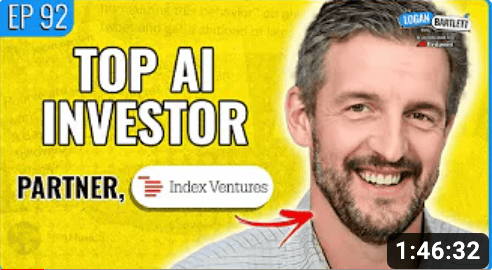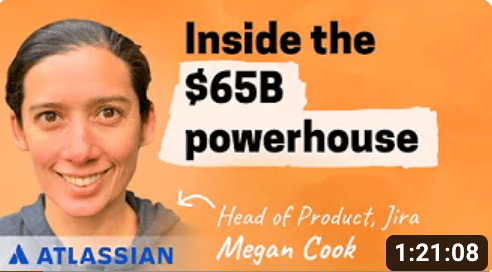- Tech Podcasts This Week
- Posts
- 🎙️Tech Podcasts This Week - Defending Elon🎙️
🎙️Tech Podcasts This Week - Defending Elon🎙️
All In Podcast on Elon; Huberman on memory and attention; Y Combinator on how to build as a non-tech founder
Greetings fellow humans,
Welcome to Tech Podcasts This Week, where we did the work of listening to 23 hours of tech podcasts and picking out the best bits - ready for you as a 3 minutes read.
This week we have our friends at the All In Podcast talking about Elon Musk; Andrew Huberman on memory and attention; and Y Combinator on how to build a startups as a non-tech founder.
If you are not already subscribed to the newsletter, please subscribe here. And if you forward this to a friend, we will love you forever.
Hugs
All-In Podcast: juiciest moments

Here are the three key insights from this week’s All In podcast with Chamath Palihapitiya, Jason Calacanis, David Sacks & David Friedberg
1. Why no innovation in the defence sector? The besties lashed out at the defence sector in the wake of the drone strike that killed three U.S. troops in Jordan. They said the private sector - e.g Palmer Lucky from the tech defence company Anduril - could have done better if they were in charge. Chamath said: "we are the most sophisticated technological country in the world... am I supposed to believe that if Palmer Lucky and Anduril were building this system, that this is what would have happened?".
2. Defending Elon & his $55bn package. Most CEOs pay themselves massive pay packages whatever happens to the company or the stock. Elon’s $55bn package was tied to him creating enormous value for shareholders (which he did) - and so the courts should let it through. Sacks observes, "most CEOs won't sign up for this deal... most CEOs work their way up through the corporate ladder, they get into the CEO chair, and then they pay themselves huge amounts of money regardless of whether the company succeeds or fails."
Jason Calacanis added that legal and regulatory interventions such as that by Delaware could dampen innovation and risk-taking in corporate America: "It will have a chilling effect... it will cause companies to be even more constipated and sclerotic and unimaginative."
3. US foreign policy is stupid. The podcast warned that intervention by the US risked inflaming tensions in the Middle East. David Sacks argued against hasty military actions, emphasizing the need for restraint: "If we get into a war with Iran, every single one of our bases will be attacked... these strategies don't make any sense."
Y Combinator: build a startup with no tech skills

Here are the four key insights from this podcast about how to build a startup with NO technical skills.
You need a technical co-founder: The ability to attract a talented technical partner is a core differentiator for a successful non-technical founders. "The best business founders recruit amazing technical co-founders and that is how they distinguish themselves… Imagine the set of people that are great business founders... and there's the set of people that can recruit amazing technical co-founders... You want to be in the intersection of those two sets."
Execution is everything: Ideas are easy and it’s the technical co-founders that play the pivotal role in turning visionary ideas into tangible products or services. "Ideas are a dime a dozen... great software companies are built by great software engineers."
You have the sell the idea of “adventure” together: A non technical founder has to emphasise the idea of embarking on an adventure together rather than merely hiring someone to execute an idea. "You're offering adventure... Let's build a company together.”
Best quote: "If you're talking about a software startup, yes, and you somehow don't have a technical co-founder, this would be like I'm going to build a rocket to the moon, yes, but no one here knows anything about physics."
Logan Bartlett: where is AI going

This podcast features a conversation between Logan Bartlett and Mike Volpi, a general partner at Index Ventures. Here were the five takeaways:
Embrace judgment over speed in investments:
Mike Volpi emphasizes the shift towards valuing judgment more than speed in the current investment landscape. This reflects a broader trend in the venture capital industry towards prioritizing strategic insight over rapid action.
Quote: "There's a period of time where velocity matters more than judgment. Being fast is what matters more than being capable of assessing a situation. I think what we're entering now is a phase where judgment is more important than velocity."
Deep technological curiosity leads to success:
Volpi's journey into AI investing started from a place of genuine curiosity and fascination with technology. This curiosity led him to deep dive into artificial intelligence, despite not fully understanding it initially, and eventually to successful investments in the field.
Quote: "I didn’t really comprehend AI particularly well at that point, but I thought, well, you know, how is it that a vehicle can drive itself?"
Align investments with personal interests:
Volpi believes in aligning investments with areas of personal interest. By investing in fields that he is passionate about (e.g artificial intelligence) he ensures that he is not only financially invested in his portfolio companies but also emotionally and intellectually engaged.
Quote: "I like to align what I’m interested in and what I invest in."
The importance of adapting and evolving:
Reflecting on his transition from Cisco to venture capitalism, Volpi highlights the importance of adaptability and willingness to evolve professionally.
Quote: "My weakness as an investor is I fall in love with tech...am I doing this because I love the tech or am I doing this because we think we're going to make money at this?"
Prioritize building relationships with entrepreneurs:
Volpi places great emphasis on the relationship between venture capitalists and entrepreneurs, viewing it as a partnership where mutual respect and understanding are key.
Quote: "The venture capitalist job is very statistically oriented job...but if you don't swing, you're never going to hit it."
Lenny: advice on being a PM from Megan Cook, head of product for Jira

Five bits of advice on product management from Megan Cook, head of product for Jira.
Regularly schedule conflict resolution meetings. This approach ensures that conflicts are addressed early and constructively, preventing them from escalating and fostering better relationships among team members."It's 30 minutes every week and it's just for myself, my engineering, and my design leader, and we get together and we know that we're going there to have a conflict."
Create space for play and psychological safety. Organizing team-building activities and open forums for sharing feedback are all important and help in building trust and encourage innovation. "By having a specific slot of time in your week for something like that, then you're sort of in that mindset... it makes it much better."
Be open to customer feedback. Emphasizing the role of customer feedback in product development, Cook shares how Jira integrates customer insights into its product strategy. "We bake in these rituals just to make it super easy for everyone to [listen to customer feedback]."
Encourage team autonomy. Cook discusses how Atlassian fosters innovation by allowing teams to explore new ideas and solutions. This autonomy enables teams to experiment and find creative ways to solve problems, contributing to the company's adaptability and growth. "Innovation can come from anywhere so anyone can pitch new ideas or products."
Learn from Failure. Cook shares a personal story of overlooking an opportunity to expand a feature into a broader product offering. This experience taught her the importance of thinking big and considering the wider applications of a successful feature or product. "I should have realized that we could have built this amazing service that every product could have moved themselves forward with."
Andrew Huberman: tips top improve your working memory

In this podcast Huberman discusses the latest science around working memory. This is what you need to know.
What is “working memory”? Working memory is a special category of memory in which we are able to hold small amounts of information in our mind for short periods of time. Working memory is also very closely related to attention. This podcasts emphasizes the importance of understanding and improving working memory to develop better focus and attention skills.
How do we improve working memory?
1) Do activities that promote neuroplastic changes. This could include targeted cognitive exercises or learning new skills - anything designed to challenge and strengthen working memory capabilities.
2) Improve you diet. Huberman talks about benefits of yerba mate tea for its antioxidant content and neuroprotective effects, saying that nutrition can play a role in cognitive enhancement.
3) Change you lifestyle. Cold exposure, improving sleep quality and managing stress; Non-Sleep Deep Rest (NSDR) and Yoga Nidra can also help with working memory (and therefore concentration).